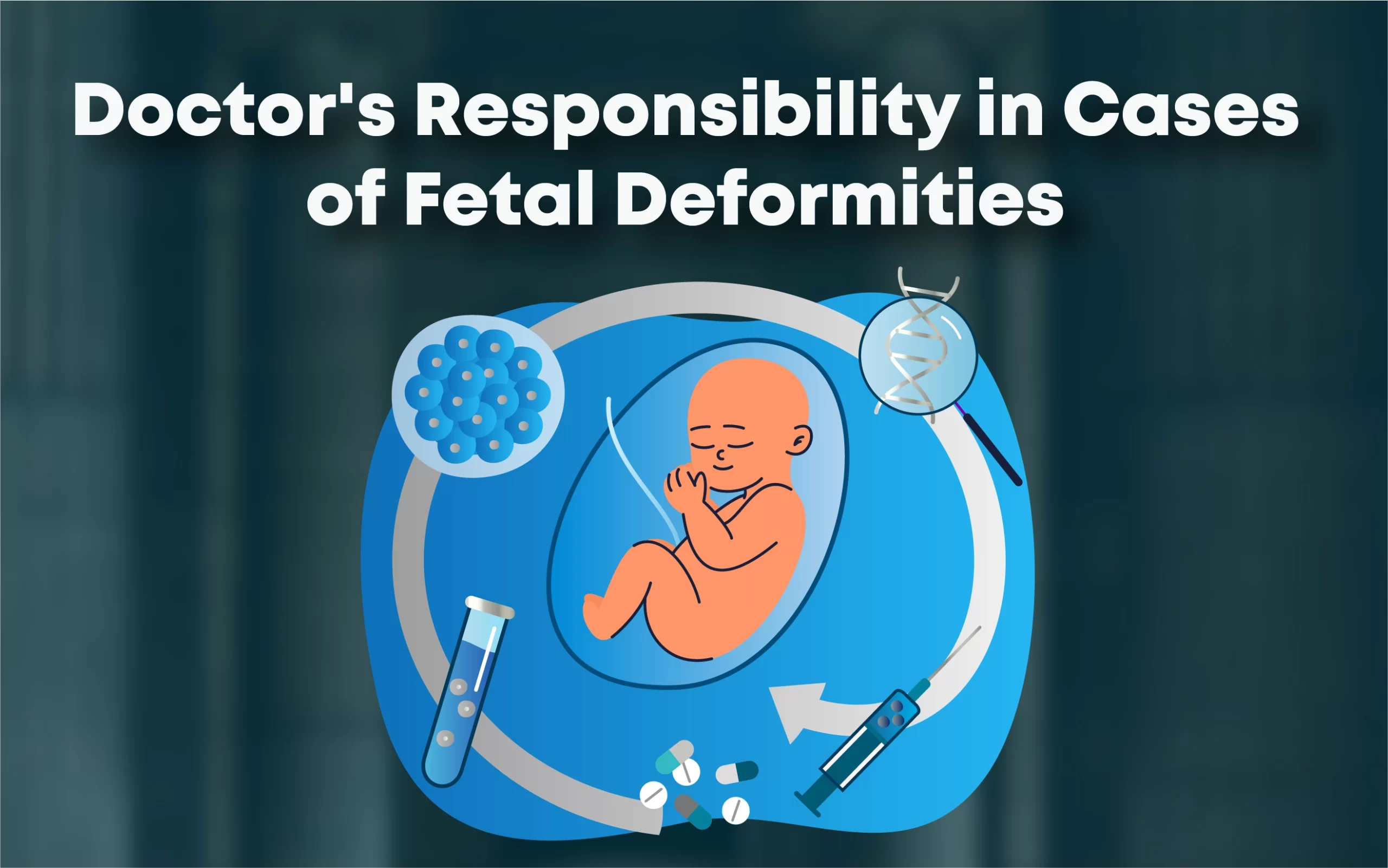Doctor's Responsibility for Fetal Deformities:
Interpretation of the Dubai Court of Cassation Ruling In the realm of medicine, pregnancy and childbirth are among the most complex and delicate matters, where medical errors can have serious repercussions on both the mother and the fetus. In this context, it is crucial to understand the responsibilities of doctors, nurses, and medical centers in cases of fetal deformities and the resulting damages.
In the case at hand, the ruling issued by the Dubai Court of Cassation on 29-01-2015 addresses the appeal filed by a couple against a medical center and several doctors and nurses, based on alleged medical errors leading to deformities in their child born as a result
Facts and Claims:
According to the judgment and documents presented, the facts can be summarized as follows: the wife became pregnant before 11-11-2009 and consulted the relevant medical center. During her pregnancy, two doctors monitored her condition, one responsible for medical examinations and medication administration, and the other performing necessary radiology and tests. There was also a nurse assisting the two doctors.
The medical diagnosis was based on incorrect information, resulting in fetal deformities and severe harm. As a result, the couple filed a legal claim against the medical center and the involved doctors, seeking compensation of thirty million Emirati dirhams, plus legal interest at a rate of 12% from the date of the legal claim until full payment.
This judgment was appealed and referred to the Court of Appeal under case number 821 of 2013. The Court of Appeal issued a verdict in favor of the primary judgment on 9-12-2013.
Consequently, the appellants appealed this judgment to the Court of Cassation, which includes the document they presented.
In the final judgment, several key points were addressed, including:
- The appellants filed the lawsuit on three different grounds related to medication, radiology, and inadequate care.
- It was confirmed that the medication given to the second appellant was not the cause of the deformities.
- A report from the Center for Planning and Quality of Medical Services confirmed that the level of medical care did not meet the required standards.
In the end, the Court of Cassation considered shortcomings in causation and due process, and therefore, the judgment required review
Judgment and Justifications:
Although this case concerns alleged medical errors during pregnancy, the Court of Cassation considered deficiencies in causation and due process in previous judgments. Accordingly, the court emphasized the need for a review of the judgment.
Expert Opinions:
Ahmed Saber, Head of Litigation Department: Ahmed Saber provides an important legal opinion regarding this case. He points out that the previous judgment of the Court of Cassation shows deficiencies in causation and due process, necessitating a review of the judgment. It should be understood that the assessment of legal matters depends on the details and evidence presented, highlighting the importance of providing accurate and tangible evidence to support the couple’s claims.
Nada Al-Mawwi, Head of Consultation Department: Nada Al-Mawwi underscores the importance of good healthcare and medical responsibility in the field of pregnancy and childbirth. She notes that this case demonstrates that medical errors can have serious consequences on people’s lives. She encourages the promotion of professionalism and quality in healthcare and emphasizes that matters should be evaluated based on professional and responsible standards, not perfection. She stresses the need for collaboration among all parties involved – doctors, patients, and institutions – to ensure the highest levels of medical care and patient safety
Conclusion:
medicine, particularly in pregnancy and childbirth. This judgment serves as a reminder of the importance of prudence and professionalism in medicine and the necessity of treating people’s lives with respect and care. However, like any other field, medicine is not without errors. While errors can be painful and devastating, matters should be measured by professional and responsible standards, not perfection. In the end, all parties involved – doctors, patients, and institutions – must work together to ensure the highest levels of medical care and patient safety

